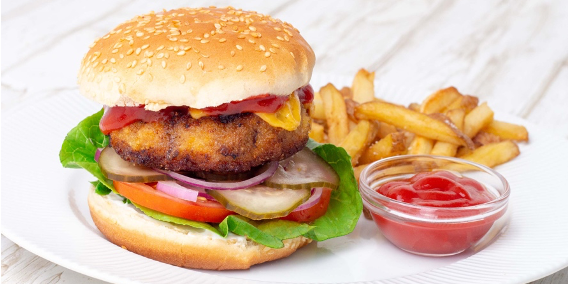
It’s a classic dilemma.
To maximize weight loss, you are tracking every calorie, substituting junk food with healthier alternatives, and cooking all of your meals at home. All of your hard work is paying off. As long as you stick to your plan and don’t cheat; the weight is just going to keeping coming off. You have already lost 10Kg and feel unstoppable!
That’s when life gets in the way.
Maybe it’s your birthday celebration. What would everyone think if you didn’t take a slice of your own birthday cake? Or your best friend is back in town and just wants to indulge for the entire day! Unfortunately, quinoa isn’t what your friend was craving for.
You’ve already made so much progress, so you think, “I can eat my cheat meals this weekend and splurge for a couple days and it won’t affect me that much right…”.
When Monday comes, you weigh yourself for your weekly weigh-in and you can’t believe it: you’ve gained 2Kg.
Two months to lose 5Kg and then one weekend to gain 2Kg. The daily morning workouts. Eating nothing but steam vegetables and skinless chicken breasts. And counting every calorie. Wasted.
First the bad news: no, your scale isn’t lying to you, you gained 2Kg. But the good news is it’s definitely not 2Kg of fat. Most likely it is nothing more than water weight.
But how do you know for sure?
Can I Gain Fat in One Day?

Let’s get one thing straight: you can’t gain a kilo of fat in a day, or even 2kg in one weekend. Biologically, it would be astounding if you did. You are very much aware of how difficult it is to lose fat quickly, but don’t laugh when I tell you, in theory, it is just as “difficult” to gain fat.
Fat gain or loss has a lot to do with your energy/caloric balance–how many calories you take in vs. how many calories you use during the day. If you are using more energy than you take in, your body gets some energy it needs from your fat stores. If you’re taking in more energy– eating beyond your body’s needs–then the opposite happens: you build fat stores.
A common theory in the health and fitness world is that there are around 3,500 calories stored in a pound of fat. The theory goes that if you reduce your daily caloric intake by 500 every day of the week, in 7 days you’ll lose ½ kg of fat. Conversely, if you overeat by 500 calories a day, you can gain a ½ kg of fat in a week.
500 Calories x 7 Days = 3,500 calories/week or 1 lb/ week
The point is it TAKES TIME to gain or lose fat.
Of course, it is much easier than you think to overeat 500 calories a day. A large blended coffee-flavoured drink once a day will do it.
In order to gain a ½ kg of fat, you would need to add about 500 calories a day on top of your normal diet, every day, for about 7 days. This makes gaining any significant amount of fat from even the craziest all-out cheat days extremely unlikely.
To gain 2 kg of fat in a day, you’d have to eat about 17,500 calories on top of your daily caloric limit. Not even Dwayne ‘The Rock’ Johnson can consume that many calories!
What is Water Weight?

So, if that 2 kg of weight isn’t fat, then what is it? And how long is it going to stick around? The answer involves your body’s favourite energy source: a molecule called glycogen.
Glycogen is an energy source that is produced primarily from carbohydrates. Your body loves glycogen because it’s an easily accessible energy source that provides a lot of energy.
Glycogen also has an interesting attribute: it bonds really well with water. In fact, for every gram of carbohydrate in your body, there are about 3 to 4 molecules of water bonded to it. This can cause some large increases in weight, but weight due to water, not fat. Depending on what kind of diet you were on, loading up on carbs on a cheat day can increase your weight noticeably.
If you were trying to lose fat, you likely were trying to cut carbohydrates out of your diet. It’s a very popular technique, and diets structured around low carbohydrate and low caloric intake are about as basic a diet as they come. The Mayo Clinic notes that a diet targeting low carbohydrate intake constitutes about 60-130 grams of carbs a day. Some popular diets – such as the Atkins Diet – target extremely low levels of carbohydrates, as low as 18 grams a day.
If you’re consuming 60 grams of carbs a day, you’re holding onto approximately 210 grams of water. That’s about half a pound of water.
But if on a cheat day, you decide to eat and drink whatever you want and load up to 300 grams of carbohydrates (the average number of carbs eaten by men (1)), you would be retaining around 1kg of water.
If you were on a 60 carbs/day diet, you could be 700 grams heavier already. If you went up to 400 grams of carbs, you could add on almost 1.5kg of water.
However, glycogen is far from the only substance or factor that can cause your body to retain extra water. Excess sodium (salt), something commonly found in your favourite cheat meals, can also cause your body to hold onto the water on top of the water held onto by your glycogen. Once you factor in the effects of other things you ate and drank, your hormones, and your unique body composition, you can see why your weight can fluctuate so much.
Once you return back to eating a low carb, low sodium diet, your body will naturally shed the extra water weight you gained.
So, Can a Cheat Day Ruin My Body Composition?

A cheat day every once in a while will not erase weeks and months of hard workouts and careful calorie counting. You can’t put on kilos of fat over one weekend.
Changing your body composition and losing weight is a long-term process, but if you do it right, you’ll have long-term results. Quick fixes and crash diets that focus on cutting out nearly all carbohydrates for a short period don’t actually achieve lasting results, and now that you understand a little about glycogen, you also understand why.
However, this doesn’t mean you can get carried away on cheat days.
It’s so easy for your cheat day to become a cheat weekend, and your cheat
weekend to suddenly become a cheat week. Before you know it, you are
back to your old eating habits. Try a cheat meal instead and make sure you
plan a workout before to rev your metabolism.
Your body will thank you the next day.
Bottom line: it’s OK to indulge once in a while!
Fat gain or loss is determined by how many calories you take in and how many calories you use in a day.
Water weight can come from increased glycogen, an energy source that is produced primarily from carbohydrates.
A cheat day every once in a while will not erase weeks and months of hard work and making it part of your routine means you’re in charge of it. Eating your favourite meal can help keep you motivated. (But contrary to popular belief, cheat days don’t boost your metabolism). Any sudden weight gain is not fat.
Making cheat days a part of your routine makes it easier for you to manage them. Just make sure after you’ve had your fun, you get back on your fitness journey and keep working towards your goals.
Disclaimer: This article should not substitute professional medical advice. When starting a new diet or exercise plan, always consult your physician and exercise professional first.
Information in this article has been extracted and edited from InBody USA ‘Does a Cheat Day Undo a Week at the Gym?” updated
on September 17, 2018, for accuracy and comprehensiveness. It was originally published on February 17, 2016.
(1) Source US department of agriculture
